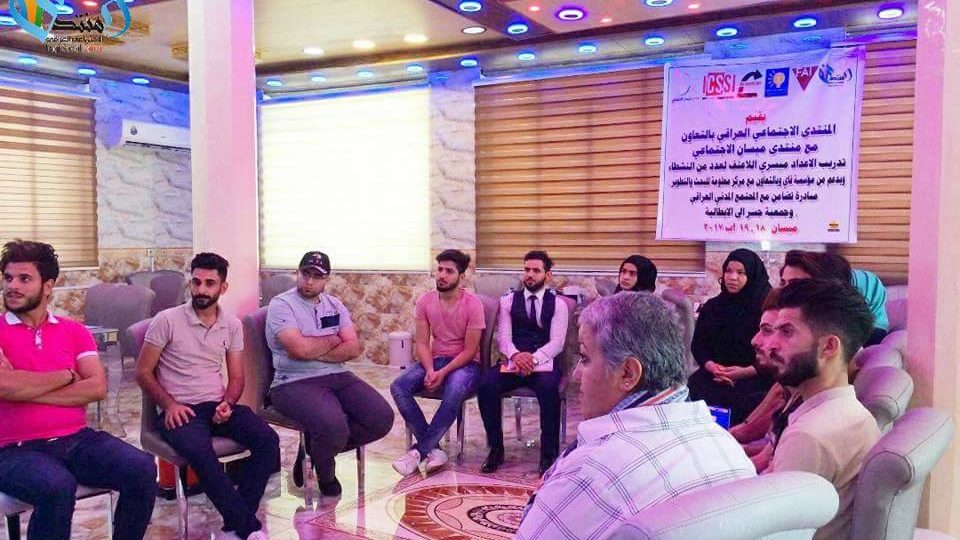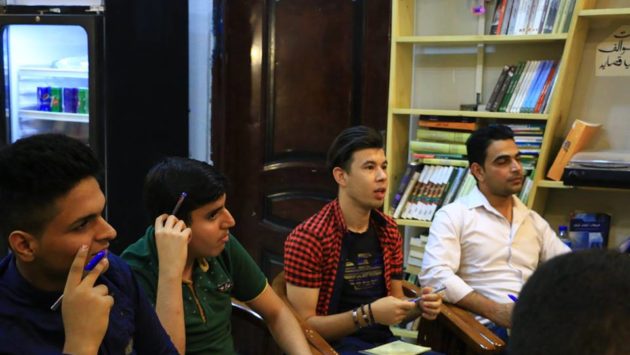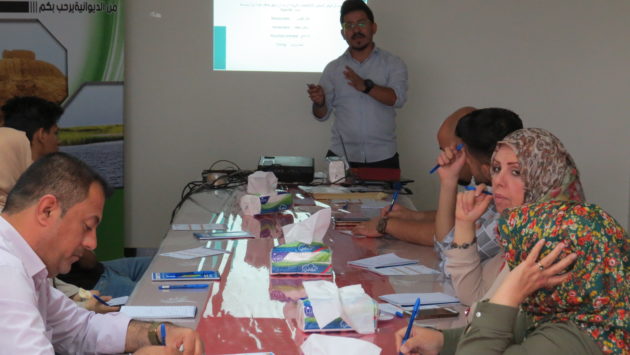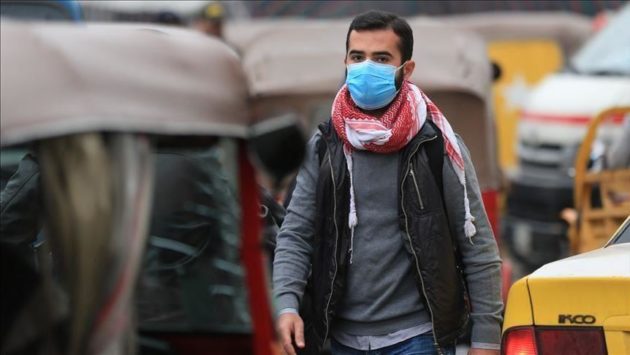Maysan’s Social Forum Non-Violent Action
Salman Khairalla, 22 August 2017
In Maysan province, Amarah is often referred to as ‘the city of love and beauty’, with roots that extend back hundreds of years. Historically, it has always been home to a wide range of people of different religions and sects, yet who nevertheless lived together peacefully and harmoniously. This peaceful coexistence is precisely what we in the Iraqi Social Forum sought to revive in the minds of young activists from 18-19 August 2017 when the ISF organized a youth training on practical strategies for nonviolent resistance. The training was attended by 13 young men and women, from various civil society groups and activists in the governorate.
The training was organized in collaboration with local organizations;
- The Misha Organization, a non-profit organization working on human rights issues, as well as on the protection and preservation of the natural heritage of Maysan
- Youth for Freedom and Peace, a group of volunteer youth working to promote the values of peace-building and coexistence within the governorate of Maysan
- The Future Team, a group that believes that the future is in the hands of young people, and thus works on promoting youth development and capacity building
- Sumer Humanity, a voluntary, non-profit organization that works to support humanitarian causes
- Al-Khwa Alnadhifa, a team that works on humanitarian and community-based education campaigns in different Iraqi cities
- Friends for Voluntary Work, a team working on issues related to young people and raising their capacity to build peaceful communities
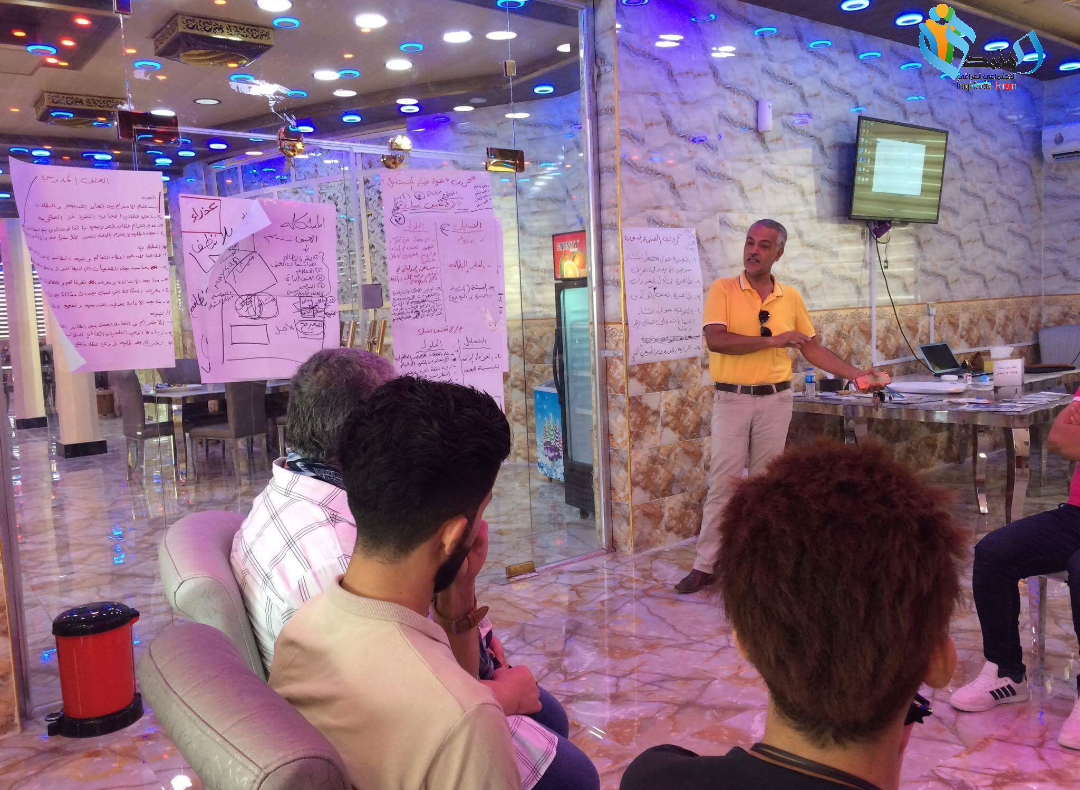
The training was led by Raya Assi, a member of ISF, specifically active in its nonviolence masar (path). On the first day, she talked about topics relating to nonviolence, providing concrete examples of nonviolent and violence activity, and stressing the importance of social and cultural integration among people of different backgrounds, beliefs and traditions. She went over the most important tools for the facilitator of nonviolence, such as negotiation, how to deal with our internal power, how to create our own goals, and how to develop intelligent and effective ways to achieve them. The second day was concerned with building the team and developing campaigns with clear and realizable goals, along wth an overview of mechanisms for their implementation.
In addition to this, Salman Khairallah explained of the work of the ISF: its objectives and its masar (paths), its past activities, as well as its future project of building peaceful coexistence in Mesopotamia. He went over the proposed activities and preparations for the fourth season of the ISF, which is scheduled to begin at the end of November. The environmental researcher, Ahmed Saleh Nemaa, also participated in the training, speaking on the issue of the preservation of the Iraqi heritage, the importance of including the marshes in the World Heritage list, and ways to re-establish cohesion within the local community.
At the end of the training, the teams involved agreed to work within the “Maysan Social Forum”, which was formed two months ago. Participants also proposed to create and implement a campaign aimed to preserve Maysan’s incredibly rich cultural and natural heritage — this is especially important now given the instability in the country as a whole. In the coming days, the group will write a full plan on how it intends to build the campaign. After the training, the team visited some of the city’s ancient landmarks which represent its flourishing and glorious past.
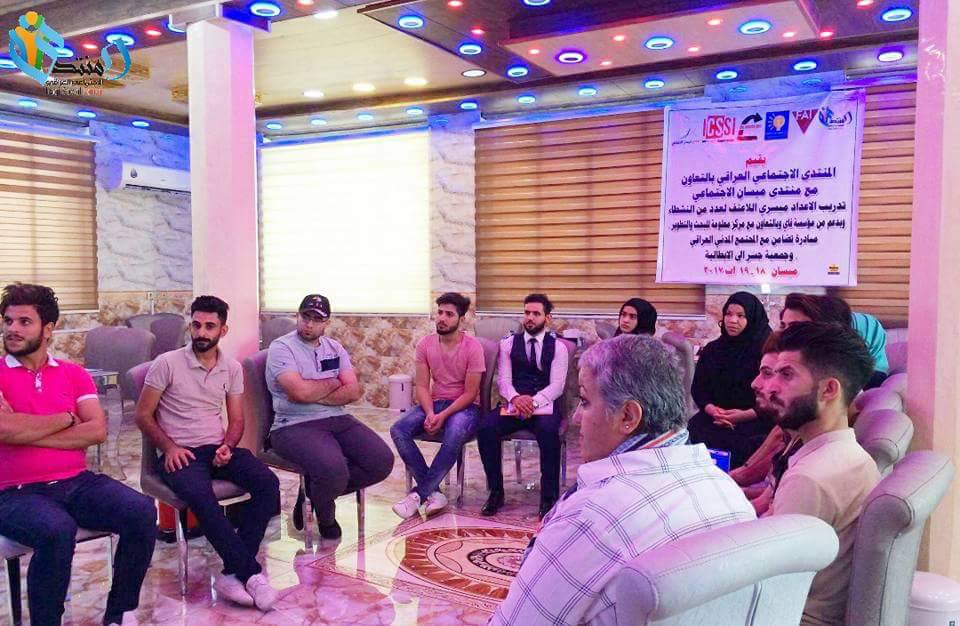
This training was part of an integrated project, which works in two areas: the first includes the cities of the Tigris River, Baghdad, Tikrit, Diwaniyah, Kut and Amarah, and the second, the cities of Ramadi, Hit, Babylon, Najaf, Nasiriyah.
The broad plan of the project is to consolidate and strengthen the concept of peaceful coexistence, to develop tools which allow communities and individuals to use nonviolence as an alternative means of conflict resolution, to raise awareness within the community about civil society and citizenship, and to preserve the natural and cultural heritage of Iraq. The project includes a number of training workshops, festivals and various activities in the cities mentioned.
The training was conducted with support from the FAI Foundation, in cooperation with the Information Center for Research and Development, the Iraqi Civil Society Solidarity Initiative, and Un Ponte Per.

